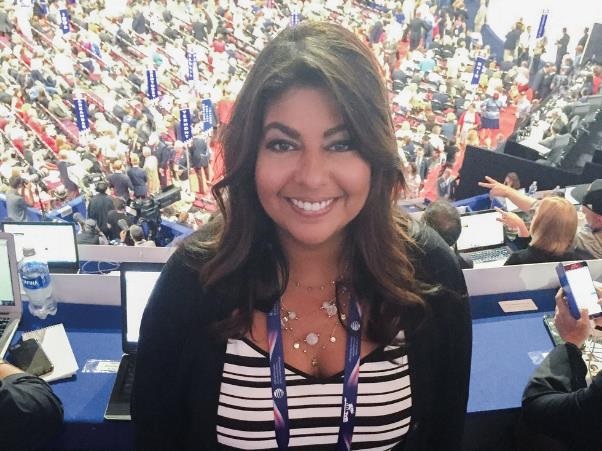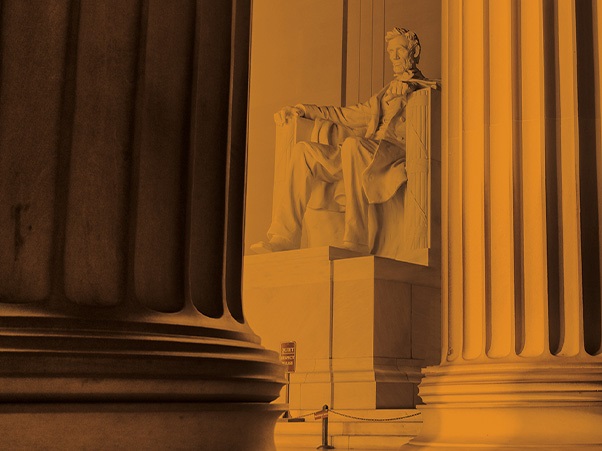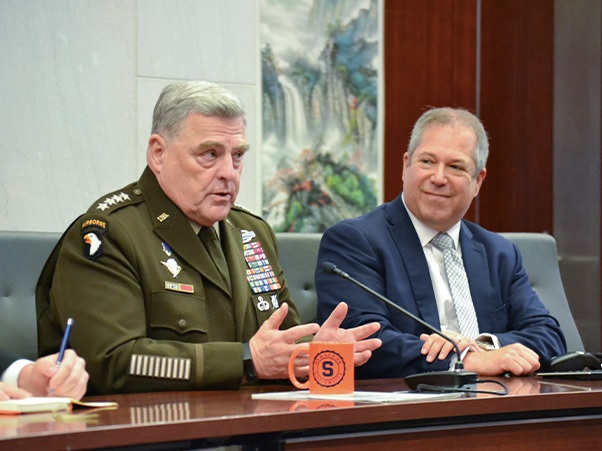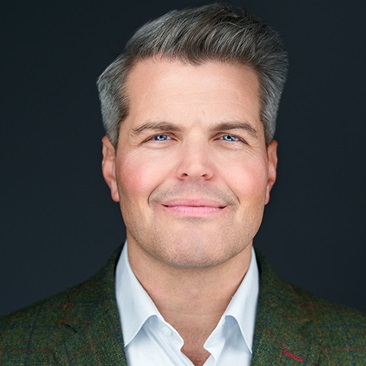Institute for Democracy, Journalism and Citizenship Tackles a ‘Daunting Problem’
December 14, 2022
As a Los Angeles Times political writer, Seema Mehta ’98 B.A. (PSt) used to hear grumbling about the press at campaign events, but voters still understood she had a job to do. “They would say, ‘Oh, the media’s so biased, but I’m not talking about you, honey,’” she laughs. “There was more of a back-and-forth, and I feel that is not as true anymore. We want to represent all voters’ viewpoints, and if a segment of the electorate won’t talk to you, that makes it really challenging.”

Distrust in the media, fueled by disinformation and partisan outlets, is among the reasons Syracuse University is opening the Institute for Democracy, Journalism and Citizenship in D.C.
Journalists like Mehta counter distrust by doubling down on the basics of the craft: checking facts, evaluating sources and questioning assumptions.
“We’re trying to be as accurate as possible and as fair as possible,” agrees CBS Saturday Morning co-host Jeff Glor ’97 B.A. (Econ). “There is division, for sure, but I do think that just talking to people can help bridge some of those gaps.”
Mehta engages some readers who challenge her facts, for example, sending them links to documents. “Sometimes it works, but not often. That’s the reason the institute is coming to fruition. It’s such a daunting problem,” she adds.
Daunting, but perhaps not new.
“This is a country that had a Civil War, that went through the Civil Rights struggle,” says Michael Kranish ’79 B.A. (PSc).
Like Mehta, Glor and hundreds of other working journalists, Kranish dual majored at Newhouse. He has covered D.C. for three decades, first for The Boston Globe and more recently as a national political investigative reporter for The Washington Post. Ten years ago, he chronicled Capitol infighting that doomed an international treaty in support of accommodations for the disabled as part of a Boston Globe series. “Today’s divisions are different than they were before, but you could argue that they build upon things that were unresolved in the previous fights of many decades ago.”

The challenge today may be more a matter of pace and volume.
“We’re just dealing with more information than we’ve ever dealt with, and I think it’s how we make sense of it that is really important,” says Ghael Fobes ’22, who earned a Newhouse degree in broadcast and digital journalism with a minor in political science from Maxwell. He’s now a researcher with NBC’s White House unit.
To that end, Mehta says the institute could promote media literacy, helping voters understand, for example, the difference between a news article and an opinion piece.
It is also crucial to reinforce with the public the function of a free press in a democracy, Kranish says, adding, “The role the press plays in shining a light on what’s gone wrong, what could be done to make things right, that is absolutely vital.”
The design of the Institute for Democracy, Journalism and Citizenship as a collaboration between Maxwell and Newhouse offers up-and-coming journalists the broad perspectives these alumni developed while taking classes at both schools.
“There’s no question that the education that I got at Maxwell has played a huge role in the reporting I’ve been able to do and the work that I’ve done,” says Glor.
“Maxwell specifically has grounded me in a civic understanding. What does it look like when democracies are under strain?” adds Fobes. “The professors I had gave us a pretty clear-eyed outlook that we’re at a really perilous time, and it was important to have that context going into a professional career in journalism.”

That said, all four see plenty of opportunity for faculty, students and others who engage with the new institute to promote dialogue and understanding, ideally by helping tackle real-world local problems.
“Just because things may seem bleak at one moment, you can never stop trying. It’s the nature of our democracy that people have to come together,” Kranish says.
“Democracy is always going to have its challenges, but there’s a reason why this country has endured,” Glor adds.
Mehta cites a 2020 Trump fundraiser she covered where she witnessed a moment of promise between political opponents.
“There were two neighbors, and one had a Trump sign up, and one had a Biden sign up,” she says. “One of their signs was falling off, and the other went over to help them fix their sign. You can still be helpful and be neighbors if you have opposing views. I think sometimes we forget that.”
By Lenore Friend
Related Story: Maxwell Partners with Newhouse to Launch Institute for Democracy, Journalism and Citizenship in DC
Published in the Fall 2022 issue of the Maxwell Perspective
Related News
Commentary

Mar 26, 2025
School News
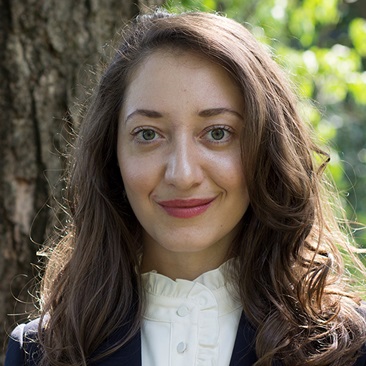
Mar 21, 2025
Commentary

Mar 19, 2025
